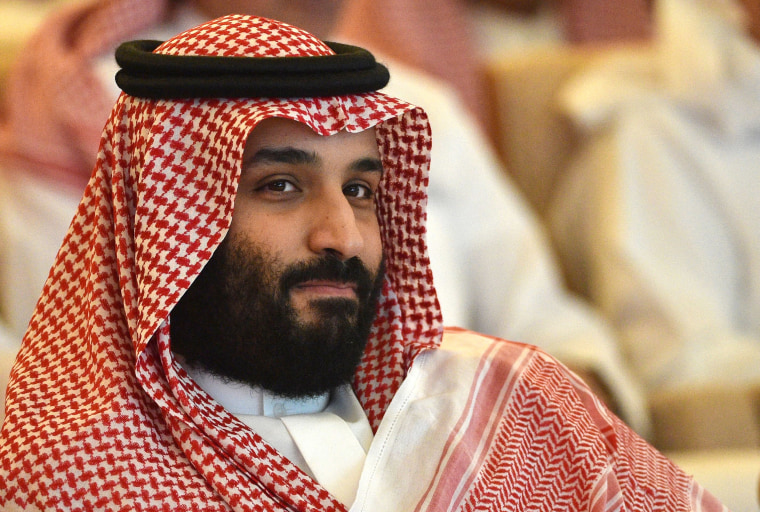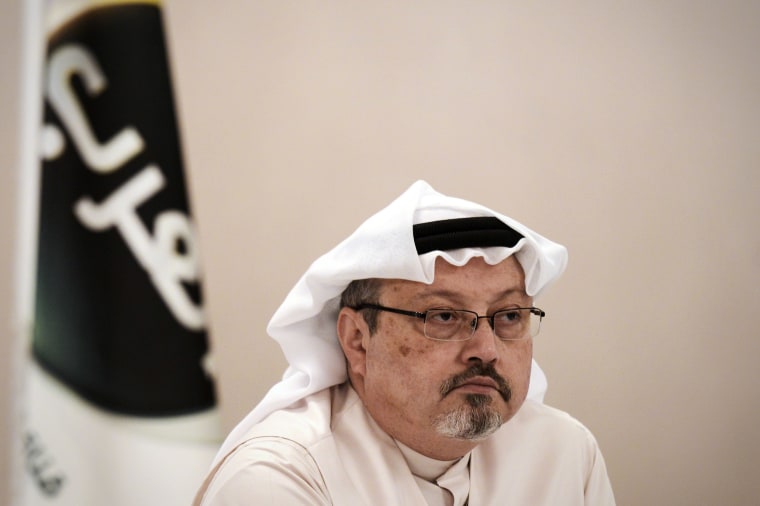The United Nations extrajudicial executions investigator said there was "credible evidence" that high-level Saudi officials, including powerful Crown Prince Mohammed bin Salman, could be liable for the killing of Washington Post journalist Jamal Khashoggi.
In an 101-page report on the journalist's murder at the Saudi consulate in Istanbul last October, Agnes Callamard called on U.N. agencies or the U.N. Secretary-General Antonio Guterres to "demand" a follow-up criminal investigation.
Callamard noted the "extreme sensitivity" of considering the criminal responsibility of the crown prince, as well as that of Saud Alqahtani, a senior adviser to the Saudi royal court who has not been charged.
"The Special Rapporteur has determined that there is credible evidence, warranting further investigation of high-level Saudi officials’ individual liability, including the crown prince’s," according to the report.
"No conclusion is made as to guilt," she wrote of Salman and Alqahtani. "The only conclusion made is that there is credible evidence meriting further investigation."
Khashoggi, a permanent U.S. resident and a vocal critic of Salman, was murdered and dismembered Oct. 2 in the Saudi consulate in Istanbul.
His killing and the botched Saudi response triggered a wave of revulsion and anger around the world that appeared to catch the kingdom's officials by surprise. Following the murder, the Trump administration has faced criticism for its defense of the U.S.-Saudi relationship.
The absolute monarchy is a longtime U.S. ally, but under Trump, King Salman and his son, the crown prince, have become linchpins of American policy in the region.
Speaking shortly after the report was published, Callamard said she did not have evidence of who ordered the killing.

"What I do have is evidence suggesting that the responsibilities of high level officials may be engaged and therefore requiring further investigation," she told reporters.
Callamard said this was particularly true of the crown prince for two reasons. The first was that those directly implicated in the murder reported to Salman, and the second was because of other human rights violations that had occurred in the year preceding Khashoggi's murder.
"There is no way the leaders of that state, including the crown prince, were not aware of those violations. In fact, there is credible evidence pointing to their involvement," she said, without elaborating on the violations she was referring to.
"What needs to be investigated is the extent to which the crown prince knew or should have known of what would have happened to Mr. Khashoggi, whether he directly or indirectly incited the killing, whether he acted without due diligence, whether he could have prevented the execution when the mission started and failed to do so," she added.
The report concluded that while it may remain unclear who ordered Khashoggi's killing, Saudi Arabia was ultimately responsible for his death.
“Khashoggi’s killing constituted an extrajudicial killing for which the State of the Kingdom of Saudi Arabia is responsible,” it found.
The report quotes an audio recording from inside the Saudi consulate in which a voice tells Khashoggi that there is an order from Interpol to send him back to Saudi Arabia.
“We are coming to get you,” the voice says, according to the report.
The report says that in the recordings, sounds of a struggle can be heard.
“Assessments of the recordings by intelligence officers in Turkey and other countries suggest that Mr. Khashoggi could have been injected with a sedative and then suffocated using a plastic bag,” the report concludes.
Saudi officials at first denied that Khashoggi had gone missing, but after a series of embarrassing stories and revelations they eventually admitted that the journalist's killing had been premeditated and pinned the blame on a rogue team — some of whom are known to have been close to the crown prince.
The CIA has concluded that Mohammed bin Salman ordered Khashoggi’s killing. The claim has been resolutely rejected by Riyadh. In November, the U.S. announced sanctions against 17 Saudi Arabian officials over the killing.
In April, the State Department publicly barred all but one of them from entering the U.S., and Washington had previously revoked the visas for 21 unnamed Saudi individuals associated with the murder.
Riyadh originally detained 21 individuals, 11 of whom are on trial in the kingdom.
